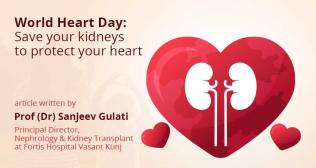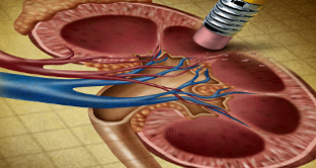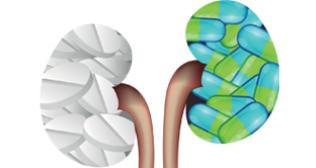
What Is Renal Failure?
Overview
When the kidneys fail or stop functioning normally, it affects its ability to efficiently filter and clean out blood. This results in the build-up of toxic products that breaches unsafe levels. This serious issue is termed as a Renal failure and can even lead to death unless treated immediately. Renal failure can be further classified into two types:
- Acute Renal Failure
- Chronic Renal Failure
Acute renal failure is not permanent in most cases and the chances of the kidneys going back to normal or almost normal with treatment are likely in case the individual does not have any other serious health problems.
Chronic renal failure is also often described as “end-stage renal disease” – a condition which results in the complete failure of the kidneys. This mandates the need for dialysis on an immediate basis or even a kidney transplant to ensure the survival of the patient in question
Symptoms
More often than not, renal failure symptoms differ from person to person. It’s quite likely not to experience any symptoms or discomfort of any sort at the onset of the disease. However, these symptoms tend to manifest slowly and by the time they are detected, the kidneys become seriously damaged. Which is why keeping a lookout for renal problems early on is vital as it gives the best chance for a cure. Some of the common symptoms include the following:
- Nausea coupled with tiredness or fatigue
- Frequent urination or no urine output
- Bone pains and muscle cramps
- Diarrhea and vomiting
- Easy or unusual bleeding
- Noticeable change in mental alertness levels
- Poor appetite
- Swelling of the legs especially in the ankles and feet
- Severe back & abdominal pain
- General Irritability
- Fever
- Unexplained seizures
- Shortness of breath
- Unexplained rashes
- A yellowish-brown tint to the skin
- A general feeling of discomfort
- Recurrent urinary tract infections
Chances are that these symptoms may resemble other conditions or medical problems. However, in any case, it’s highly recommended that in case an individual notice any of the above-mentioned symptoms, he/she should get in touch with their doctor right away.
Causes
Usually, high blood sugar (diabetes) and high blood pressure are the most common causes behind the occurrence of a renal failure. However, there are other causes which result in renal failure as well. These are detailed as below:
- A prolonged urinary tract obstruction
- Insufficient blood flow to the kidneys
- Blockage of the kidneys caused by a kidney stone or the presence of a scar tissue
- The presence of an autoimmune disease such as IgA nephropathy and lupus
- Nephrotic syndrome – usually characterized by the presence of protein in the urine, low protein levels detected in the blood, high cholesterol levels, and swelling of tissues.
- Genetic diseases such as Polycystic kidney disease – distinguished by the growth of multiple cysts filled with fluid in the kidneys.
- Recurring pyelonephritis (kidney infection).
- Glomerulonephritis – a disease that damages the kidneys’ filtering units (glomeruli)
- Damage to the blood vessels in the kidney caused by the hardening of the arteries
- Incessant use of medications which are metabolized through the kidneys
- Usage of illegal drugs such as heroin
- Alport syndrome – which can result in progressive kidney damage and even deafness and eye issues.
- Cystinosis – A type of inherited disorder
Treatment
Diagnosis for detection of renal failure is usually done after conducting a series of blood tests, kidney scans, Electrocardiogram, or biopsy.
Unfortunately, living with the end-stage renal disease can prove to be a real challenge and unless preventive steps are taken in the right direction, the affected individual can have a hard time staying alive. Despite the fact that there’s no known cure for this condition, a kidney transplant or dialysis is a prerequisite if the patient wants to survive. These treatment measures along with other supportive procedures can help patients live longer while also helping alleviate pain.



















